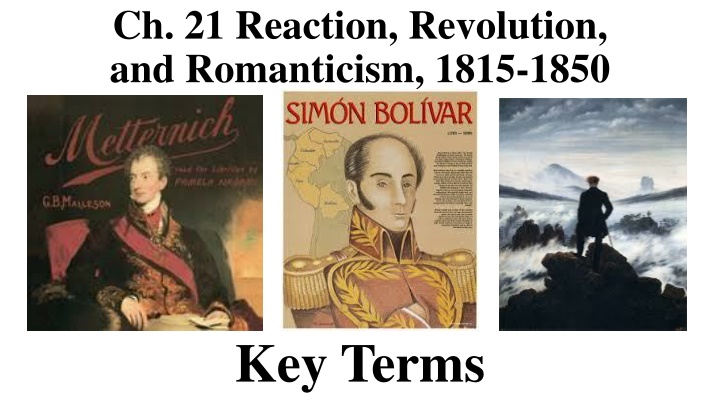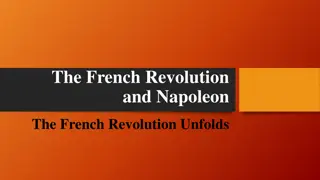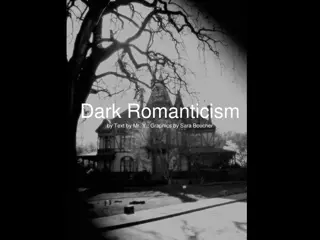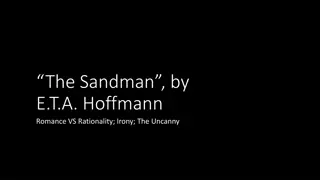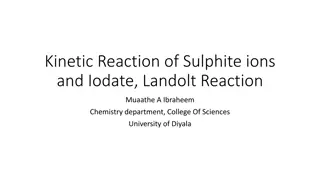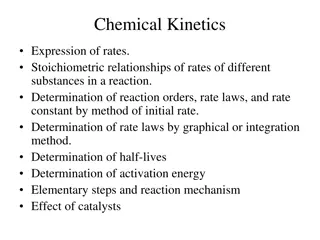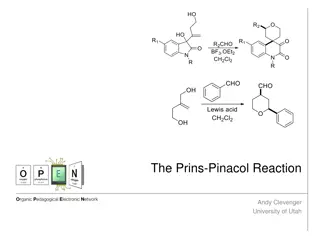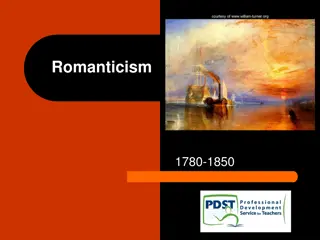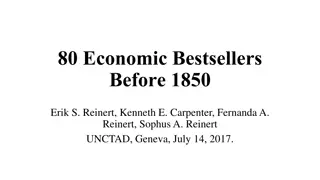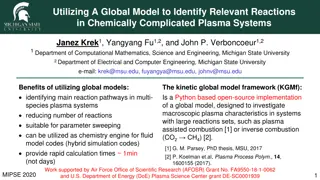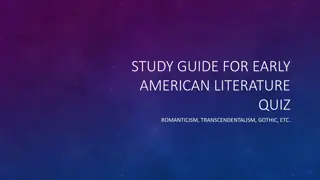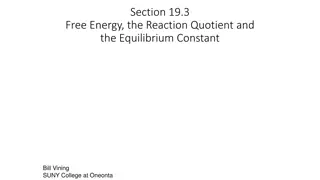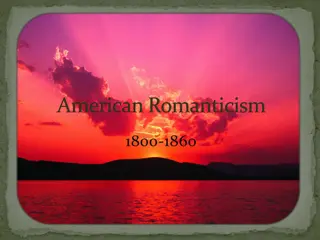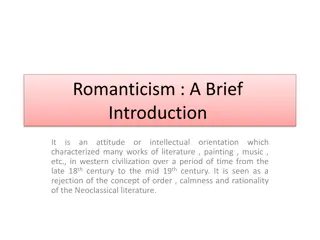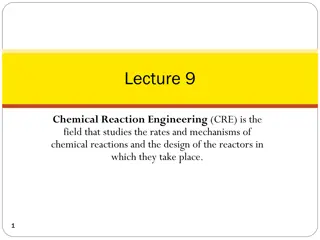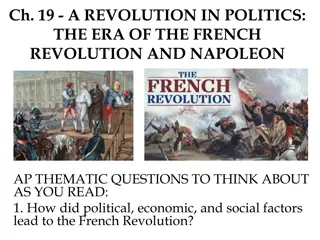Key Terms in Ch. 21: Reaction, Revolution, and Romanticism, 1815-1850
The key terms discussed in Chapter 21 include principle of legitimacy, balance of power, ideology, conservatism, principle of intervention, ultraroyalists, ministerial responsibility, and liberalism. These terms highlight important political philosophies and concepts during the post-Napoleonic era and the early 19th century in Europe.
Download Presentation

Please find below an Image/Link to download the presentation.
The content on the website is provided AS IS for your information and personal use only. It may not be sold, licensed, or shared on other websites without obtaining consent from the author.If you encounter any issues during the download, it is possible that the publisher has removed the file from their server.
You are allowed to download the files provided on this website for personal or commercial use, subject to the condition that they are used lawfully. All files are the property of their respective owners.
The content on the website is provided AS IS for your information and personal use only. It may not be sold, licensed, or shared on other websites without obtaining consent from the author.
E N D
Presentation Transcript
Ch. 21 Reaction, Revolution, and Romanticism, 1815-1850 Key Terms
principle of legitimacy (p. 621) The idea that after the Napoleonic wars, peace could best be reestablished in Europe by restoring legitimate monarchs who would preserve traditional institutions; guided Metternich at the Congress of Vienna.
balance of power (p. 621) A distribution of power among several states such that no single nation can dominate or interfere with the interests of another.
ideology (p. 622) A political philosophy such as conservatism or liberalism.
conservatism (p. 622) An ideology based on tradition and social stability
principle of intervention (p. 624) The idea, after the Congress of Vienna, that the great powers of Europe had the right to send armies into countries experiencing revolution to restore legitimate monarchs to their thrones.
ultraroyalists (p. 628) In nineteenth-century France, a group of aristocrats who sought to return to a monarchical system dominated by a landed aristocracy and the Catholic Church.
ministerial responsibility (p. 628) A tenet of nineteenth-century liberalism that held that ministers of the monarch should be responsible to the legislative assembly rather than to the monarch.
Burschenschaften (p. 628) Student societies in the German states dedicated to fostering the goal of a free, united Germany.
liberalism (p. 630) An ideology based on the belief that people should be as free from restraint as possible. Economic liberalism is the idea that the government should not interfere in the workings of the economy. Political liberalism is the idea that there should be restraints on the exercise of power so that people can enjoy basic civil rights in a constitutional state with a representative assembly.
socialism (p. 632) An ideology that calls for collective or government ownership of the means of production and the distribution of goods.
utopian socialists (p. 632) Intellectuals and theorists in the early nineteenth century who favored equality in social and economic conditions and wished to replace private property and competition with collective ownership and cooperation.
phalanstery (p. 632) A self-sustaining cooperative community, as advocated by Charles Fourier in the early nineteenth century.
risorgimento (p. 640) A movement in Italy in the nineteenth century aimed at the creation of a united Italian republic.
individualism (p. 645) Emphasis on and interest in the unique traits of each person.
Gothic literature (p. 645) A form of literature used by Romantics to emphasize the bizarre and unusual, especially evident in horror stories.
pantheism (p. 646) A doctrine that equates God with the universe and all that is in it.
